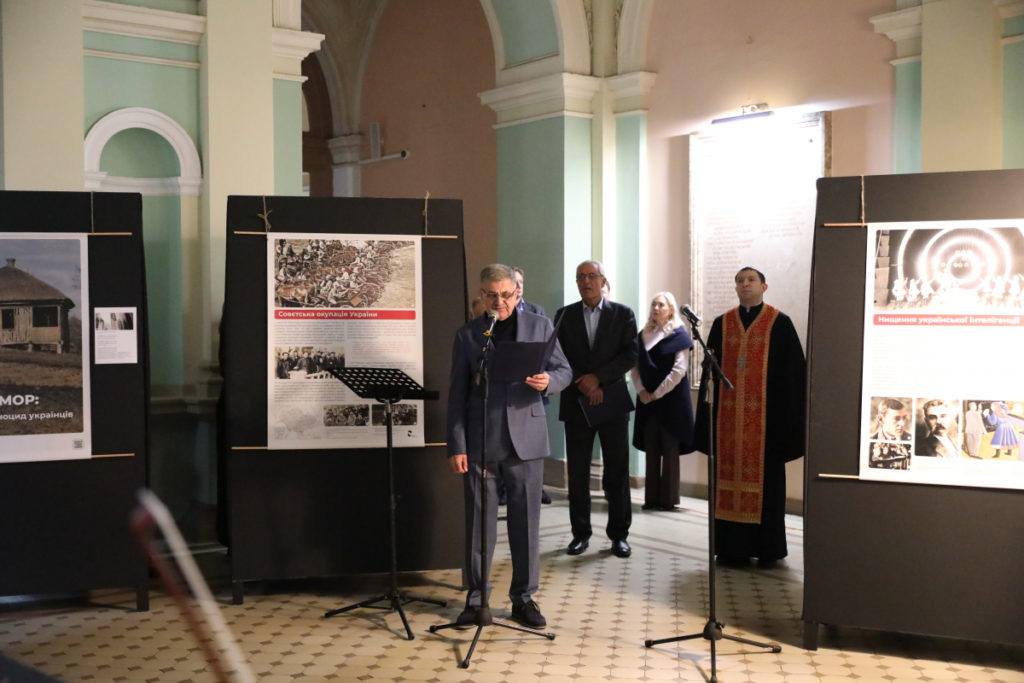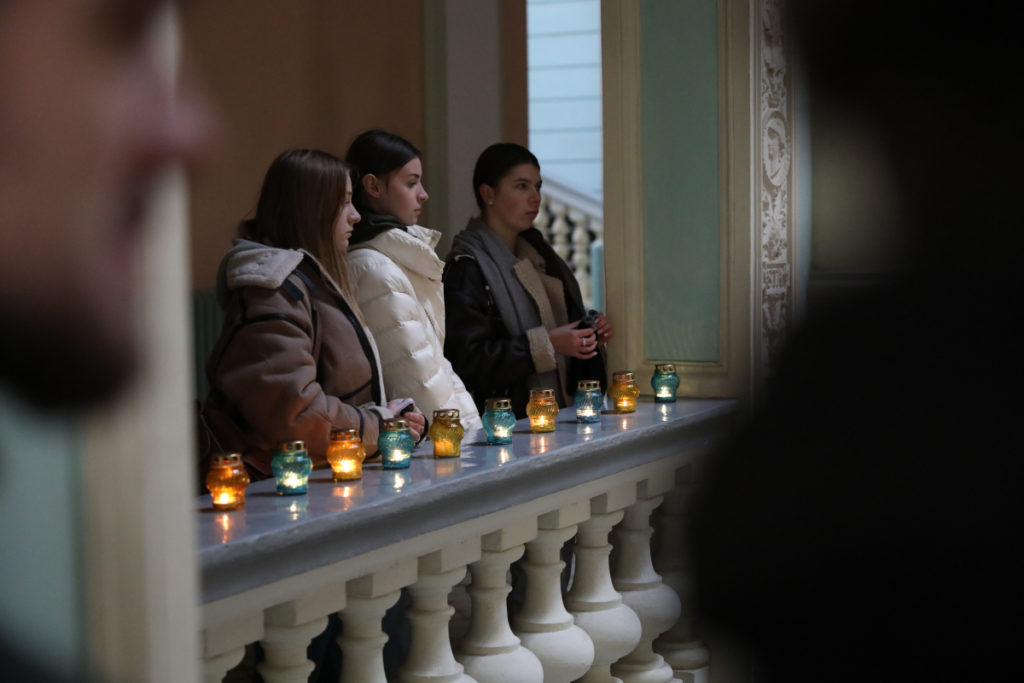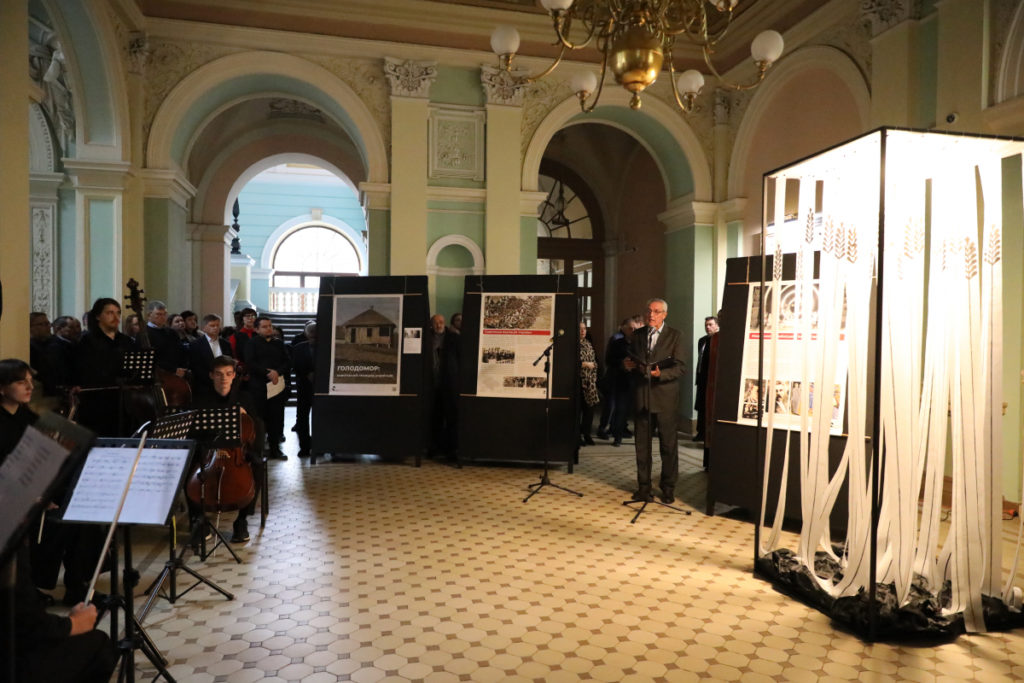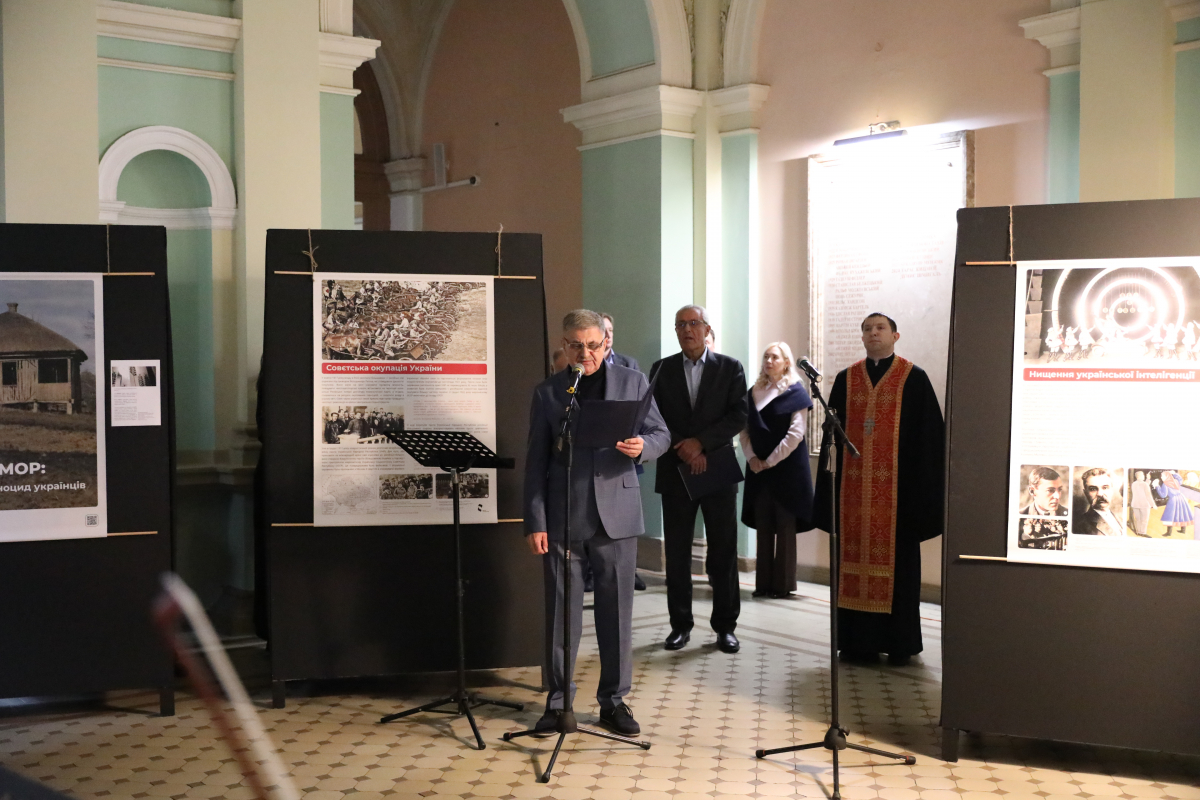An exhibition of the Holodomor Museum opened at Lviv Polytechnic University
A requiem hour for the Remembrance Day of the Victims of the Holodomors was held at the Lviv Polytechnic National University. As part of the mourning event, an exhibition of the National Museum of the Holodomor Genocide, “Holodomor: Soviet Genocide of Ukrainians,” was opened in the lobby of the main building. This was reported on the university’s website.

At the beginning of the event, the rector of the Lviv Polytechnic National University, Professor Yurii Bobalo, in his speech, reminded those present of the historical prerequisites for the emergence and consequences of the Holodomor in Ukraine and called on them to remember the crimes of the communist regime against the Ukrainian people:
“Throughout 1932–1933, almost all the grain they had grown was taken from Ukrainian villages. The grain procurement plans established for Ukraine were economically unrealistic. At some stage, representatives of the authorities conducted yard-to-yard searches, taking away all the food from the peasants, including that which had already been prepared in the kitchen. Having artificially created a situation where Ukrainians began to die en masse from hunger, the Soviet authorities took measures to prevent them from leaving for those regions of the USSR where there was no famine. On the borders of Ukraine, the communists placed armed barricades that did not allow people to leave Ukraine. The crimes of genocide against Ukrainians became the culminating stages of the establishment of Russian imperialism in Ukraine.”
Student chaplain of Lviv Polytechnic University Ihor Khomichak emphasised the importance of preserving the memory of those who gave their lives in an unequal struggle with the enemy, as well as those who, despite everything, continue to fight:
“Ninety years ago, they also wanted to trample us. And they trampled on our dignity, they crossed out the most basic human right for millions of Ukrainians – the right to life. We must pass this history on to future generations because, without the past, there is no present and no future. Let us remember all the victims of the famines in our prayers.”

For the presentation of the exhibition “Holodomor: Soviet Genocide of Ukrainians”, the Doctor of Historical Sciences, Professor Bohdan Levyk, was invited to speak. He first of all emphasised the legal aspect of covering the Holodomor events in Ukraine in the international arena:
“The crime of Nazism is condemned at the international level. Still, the communist crime of the Holodomor, the genocide of the Ukrainian people of 1932-1933, has not yet received such an assessment in international law. The Russian authorities still deny the fact that the communists of the All-Union Communist Party deliberately committed a great famine in Ukraine. According to the most modest estimates of scholars, the number of victims is four million people. We need to understand why the Holodomor happened, who committed it, and how we can prevent similar tragedies. Russia is not telling the truth about its history, Russian historians have long crossed the red lines of academic integrity, violating the principle of scientificity. Successor systems adhere to the principle of silence and falsification. We must tell our history because it is ours!”

Bohdan Levyk also noted that the presented exhibition was the result of implementing the memorandum signed by the rector of Lviv Polytechnic Yurii Bobalo and the director of the National Museum of the Holodomor-Genocide Lesia Hasydzhak. He invited everyone who wanted to familiarise themselves with the banners and broaden their knowledge about this difficult page in Ukrainian history.
The exhibition will last until the end of November.
Photo – Lviv Polytechnic.
